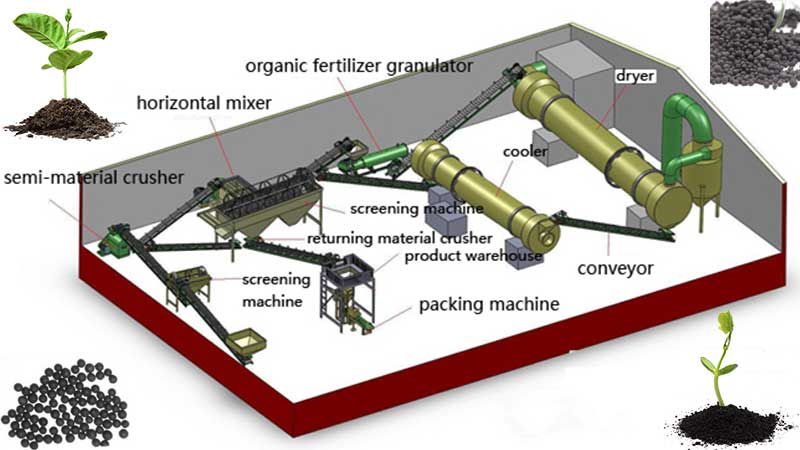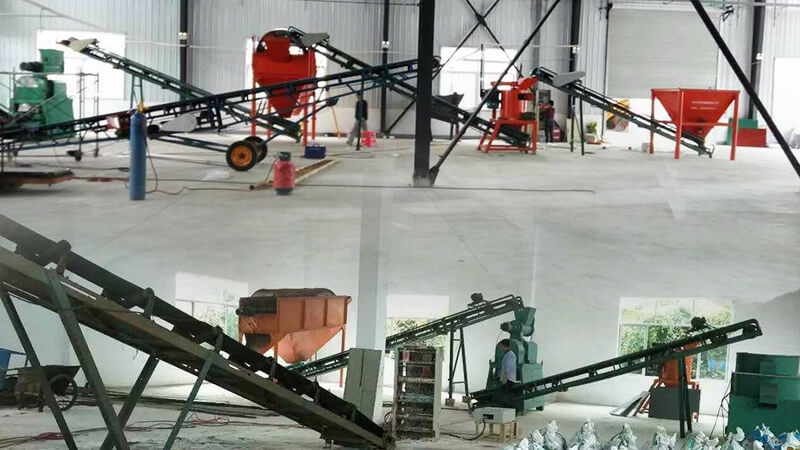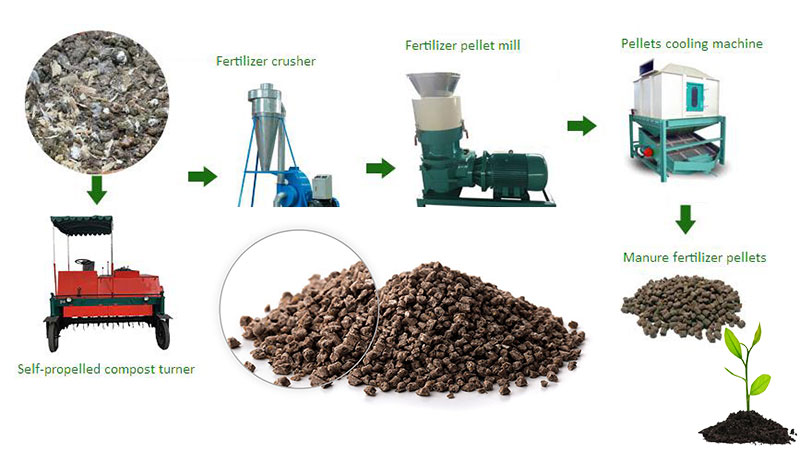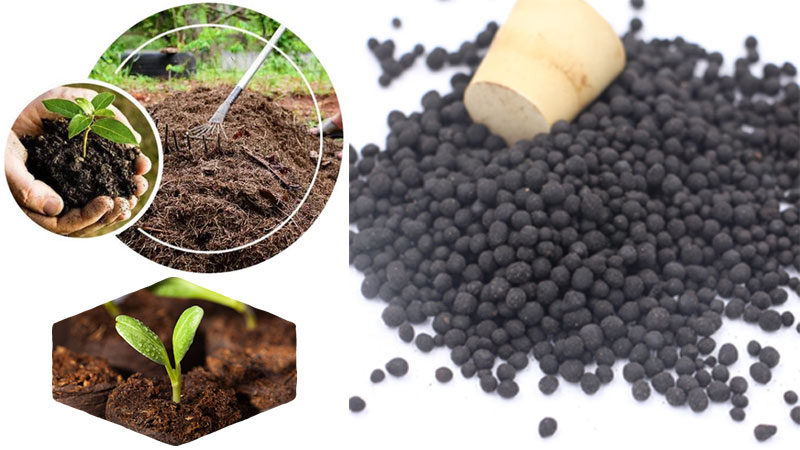Contents:
Nigeria’s vast farming base providing potentials in fertilizer market
Nigeria, located in West Africa, is a federal constitutional republic with the largest population in Africa. In the meanwhile, it is the African biggest economy.
Nigeria has 923,800 square kilometers of land area, of which 60 million hectares of arable land (including abandoned land). Currently, it has 28.2 million hectares of cultivated area, 28.3 million hectares of pasture, 10.9 million hectares of forest and 13 million hectares of water surface. Nigeria has tidal wetlands, tropical rain forest, savannah, frontier areas of tropical desert. There is highland, an elevation of 1500-1800 meters, can be grown subtropical even temperate crops. In a word, it abounds in diverse land resources.
Nigeria agricultural development has a long history and good foundation. Agriculture employment population accounts for 70% of the whole workforce. The average annual increase in agriculture reached to 3-6% in 2011-2015. However, backward agricultural technology restricts its development. Therefore, it has potential fertilizer market in Nigeria.
Nigeria’s poor land condition and low fertilizer usage
Nigeria’s land is barren. According to the Federal Ministry of Agriculture and Rural Development of Nigeria Survey, nitrogen deficiency is severe in more than 80% of the land in Nigeria (nitrogen content below 0.1%), more than 75% of the land is in serious phosphorus deficiency (phosphorus content below 10mg / kg), more than 60% of the land is in moderate or severe potassium deficiency (potassium content below 25 mlg / kg). Due to high prices, the annual application amount of fertilizer is only 1 million tons (of total various fertilizer), only an average of more than 30 kilograms per hectare, which is well below China’s farmland fertilizer usage. Therefore, Nigeria has great potentials in chemical and organic fertilizer consumption and usage.
In Nigeria, it is 20kg/ha of fertilizer usage on the average, which lags behind some countries in Africa, such as South Africa and Egypt. The average fertilizer usage is 100kg/ha. However, the most common usage rate is 200kg/ha. As is known to all, fertilizer usage is related to crop growth. To apply proper fertilizer accelerates their growth and enables higher production. The government should make efforts to increase in grain yield and nutrients for crops and active fertilizer market in Nigeria.
Total fertilizer imports value and consumption in Nigeria
 |
|
Because of low production in Nigeria, most of fertilizer is imported. Thus, over dependence on imported fertilizer results drain on foreign reserve. What’s worse, it leads to more demands on fertilizer importation and high fertilizer price, and then farmers are unaffordable when they buy fertilizer.
Fertilizer consumption of fertilizer production percent in Nigeria has been increased from 10kg/ha in 2006 to 17.8 kg/ha in 2014. Fertilizer consumption, compared to fertilizer production, is 1086.4% in 2010. In 2013, the proportion is 342.6%.
Fertilizer Production in Nigeria
There were two big fertilizer production manufacturers-the Federal Super phosphate Fertilizer Company (FSFC) set up in 1976 and the National Fertilizer Company of Nigeria (NAFCON) set up in 1988 for the production of urea. Because of poor management, the two fertilizer companies have been stopped production for over 10 years. At first, the designed capability in the two Nigeria fertilizer plants is 1 million tons per year. However, all attempts to turn 
The main fertilizer type in Nigeria is urea and phosphate compound fertilizer. And there is NPK compound fertilizer and blend fertilizer, like triple 15-15-15, 20-10-10, 10-20-10, etc. According to different kinds of crop needs, the fertilizer type may be different.
The production in Nigeria is low in the past, which leads to high fertilizer importation. First, the seasonal lack of fertilizer supply gives rise to high fertilizer price, and then farmers have difficulty in purchasing suitable fertilizer. In addition, high fertilizer price is another factor that causes low fertilizer usage. Even though there are some subsidies for fertilizer, fertilizer price is still high because of excessive intermediate link and official corruption.
As for fertilizer quality, it is always low quality. The Federal Ministry of Agriculture and Rural Development issued a new Draft Fertilizer Bill in 2015, aiming to increase fertilizer quality, fertilizer production technology and inspection and management. Therefore, people can use high-quality fertilizer. In line with the draft, Nigeria fertilizer plants, fertilizer market department, fertilizer brands and quality are supposed to be in inspection and authentication by governments.
Nigeria’s fertilizer policy environment
In 2001, New Agricultural Policy Thrust was issued in Nigeria. And in 2006, the National Fertilizer Policy for Nigeria was adopted, including fertilizer production policy, domestic marketing policy, international trade policy, quality control policy, environmental policy, etc. The policy aims to reach to the objective of “facilitating farmers’ timely access to adequate quantity and quality of fertilizers at competitive and affordable prices.” It provides some suggestion for fertilizer production manufacturers, farmers and government. The policy provides guidance on governments actions to promote fertilizer industry and agricultural development. In fact, some principles were neglected, especially for fertilizer making machine usage.
In a sense, low fertilizer usage on soil in Nigeria is related to insufficient supply but huge demand, farmers’ low income and high fertilizer retail prices. What’s more, limited fertilizer manufacturers and fertilizer policy implement leads to the issue in fertilizer application. However, fertilizer usage has been increased in agriculture because fertilizer policy.
Fertilizer cost in Nigeria
In Nigeria, fertilizer cost is divided into two components: international cost and domestic cost. Fertilizer pricing in domestic fertilizer market are negotiated by government and fertilizer suppliers and importers. And then fertilizer is sold to 36 states according to negotiated price. Of course, the fertilizer price is a little different based on fertilizer type and size. Therefore, the final fertilizer price that farmers buy fertilizer is set up by government and suppliers. When setting price, the government, on behalf of local farmers and organizations, are in dominant position during negotiation. Farmers have nothing to do during the process. What they hope is to buy fertilizer at reasonable price and get some benefit from subsidy.
Organic fertilizer and organic farming development in Nigeria
In Nigeria, organic farming is still lagging behind. On the one hand, it is related to the population and policy. Farmers in Nigeria hope to increase crop 
Although farmers’ awareness about organic fertilizer and organic farming still needs to be change, there is no doubt that the global trend is shifting to sustainable development. To use organic fertilizer is new development direction for agriculture in Nigeria. There are several organizations related to organic farming, such as Organic Farmers Association of Nigeria, Nigerian Organic Agriculture Network (NOAN), Organic Fertilizer Association of Nigeria, etc. Some constraints exist in organic farming in Nigeria, like lack of technical knowledge, lack of research, lack of awareness of organic farming, insufficient supporting fertilizer making machine, etc. Anyway, there are great potentials for organic fertilizer and organic farming market in Nigeria.
Nigeria’s broad fertilizer development prospects
Like many developing countries in Africa, Nigeria has great fertilizer market potential. Because there are urgent need for increasing food and plants production, farmers hold great expectations of cheap but high-quality fertilizer. In addition, low crop production drives fertilizer market development.
As for agriculture policy, the Nigerian government works on agricultural transformation. The government defined overall goals and objectives for ensuring food security, the realization of self-supply in grains and export expansion. In addition, the government will strengthen the efforts to support agriculture. In this way, it is beneficial to fertilizer market development.
In recent years, as the pace of fertilizer plants construction acceleration in Nigeria, several fertilizer plants were getting investments, including natural gas industrial park for nitrogen production, Indorama’s fertilizer plant starting operation, Morocco opening fertilizer factory, etc. On the other hand, organic fertilizer production line construction in Nigeria is also accelerated. Fertilizer production in Nigeria will go on developing based on vast population and food demand.
Related reading:
1. Fertilizer Production Line Designed by Fan Way
2. How to Start a New Organic Fertilizer Production Line





